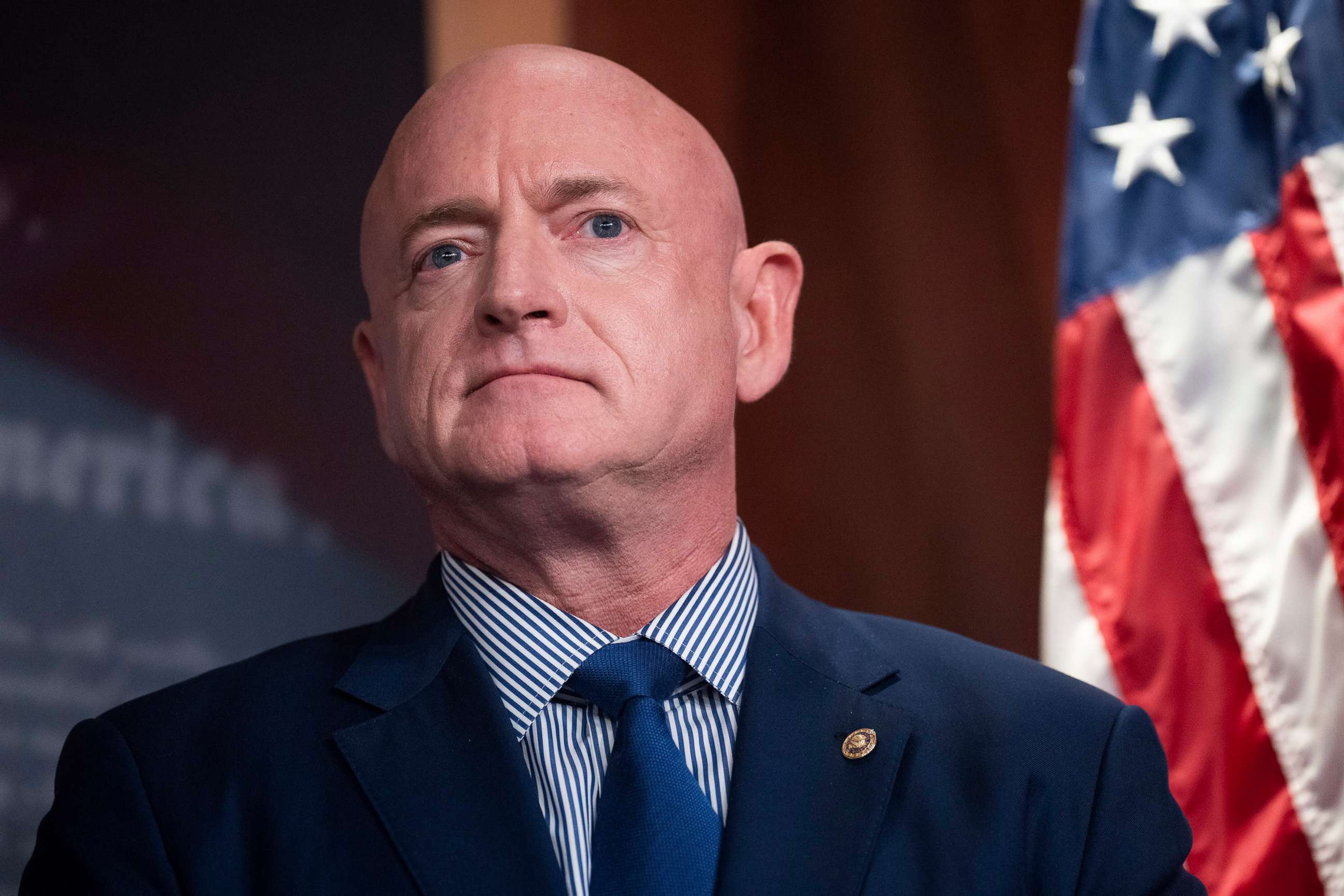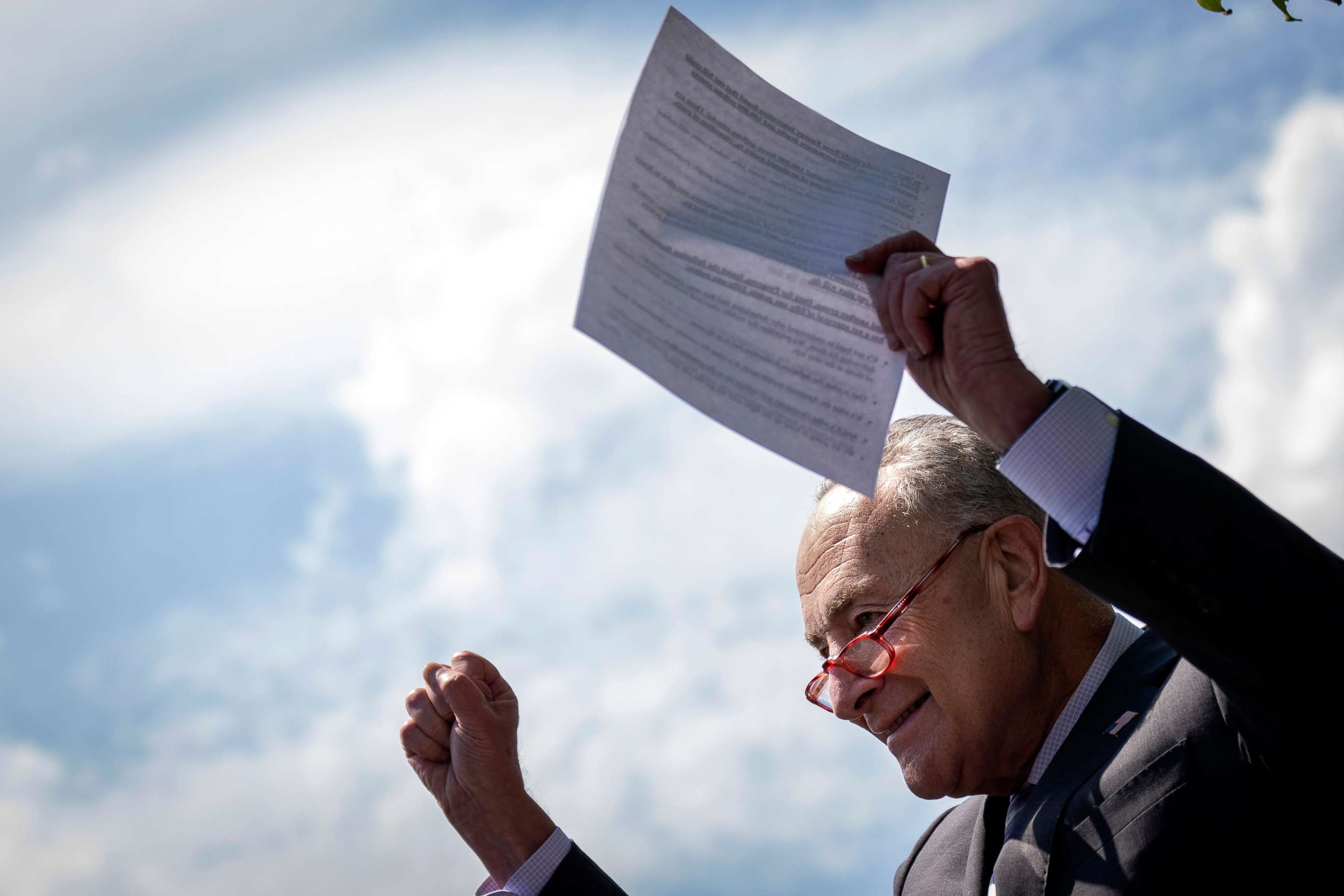In key Arizona race, Senate Dems try to highlight Blake Masters' abortion, Social Security comments
Senate Democrats' campaign arm is going on the offense for Arizona Sen. Mark Kelly less than two months before the first ballots go out in the state for the midterms -- in which Kelly's race and a handful of others could decide the balance of power in the upper chamber.
The Democratic Senatorial Campaign Committee (DSCC) on Tuesday launched its first ad campaign of the general election cycle against Republican Blake Masters, a 36-year-old venture capitalist who is running to unseat Kelly in his first bid for political office.
Arizona voters will wake up in the West to television, digital and radio spots trying to depict Masters as "not like normal Arizonans," as part of a previously announced $33 million independent expenditure reservation from the DSCC, which has a particular interest in protecting incumbents like Kelly.
Not a single ad of the three launching Tuesday mentions former President Donald Trump, who saw a slate of his endorsees win in Arizona two weeks ago -- Masters included.
The campaign, instead, argues Masters has "dangerous beliefs and plans that are deeply out of step with the state's values and would be harmful to Arizona's families," the DSCC told ABC News.
"Walk Away," a TV ad airing both English and Spanish, highlights a remark Masters made at a GOP Senate debate in June -- and later walked back -- in which he said, "Maybe we should privatize Social Security, right? Private retirement accounts. Get the government out of it." (Arizona has one of the highest percentages of residents ages 65 years and older.)

Since winning his primary, Masters has played down that remark. In a 45-minute interview with the Arizona Republic last week, he said he doesn't want to privatize Social Security. "I, think, in context I was talking about something different," he said.
In another new video ad targeting Masters, titled "His Own Words," Democrats cite Masters' past statements on abortion, arguing he would likely support a nationwide ban if given the chance.
The ad points to Masters saying in a podcast interview last year that abortion is "a religious sacrifice to these people. I think it's demonic."
Betting on Arizona voters reacting as voters did in Kansas and turning against strict abortion bans in the wake of the Supreme Court overturning constitutional abortion protections, Democrats are raising the issue in various battlegrounds. The DSCC has also reserved ad space in Nevada, Georgia, New Hampshire and Pennsylvania ahead of competitive races there to defend their Senate majority, and they launched a campaign last week in Wisconsin against Sen. Ron Johnson, also hitting the incumbent on abortion.

Masters told the Republic, in the same post-primary interview last week, that he thinks Arizona's 15-week abortion ban, which makes no exceptions for rape or incest, is appropriate for his state but that he would support a federal "personhood law" to ban all third-trimester abortions. (Such procedures represent fewer than 1% of all abortions in the U.S. and are usually done to save the life of the mother or if dire fetal anomalies are detected).
A final spot reserved by the DSCC is a Spanish-language radio ad.
Masters -- backed by millions in funding from billionaire Peter Thiel (his former employer and a major ally with whom he's partnered since taking Thiel's class at Stanford University) -- has also launched his first TV ad of the general election campaign, pitching himself as a "true independent" for Arizona, a strategy which helped Kelly win in 2020.

The spot featured his wife, Catherine, speaking and Masters playing with his three sons -- in a dramatic shift in tone from primary ads attacking his opponents and standing with Trump.
He said in a primary ad in November, by contrast, "I think Trump won in 2020. Maybe you disagree, but you gotta admit this election was really messed up."
Kelly, a Navy veteran and former NASA astronaut married to former Rep. Gabby Giffords, won his spot in the Senate in a special election two years ago for the late Sen. John McCain’s seat -- and did so by just 2.4%




